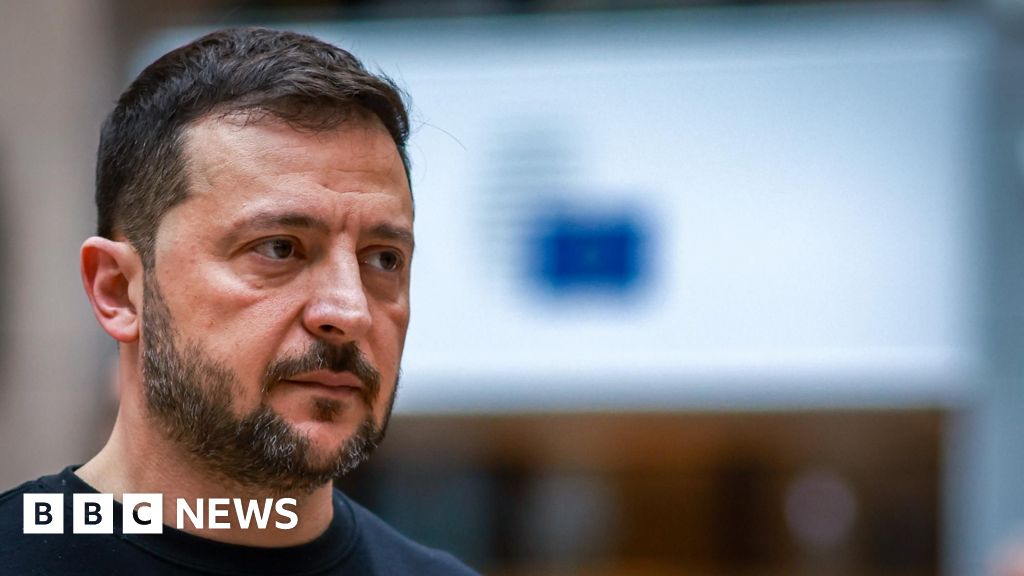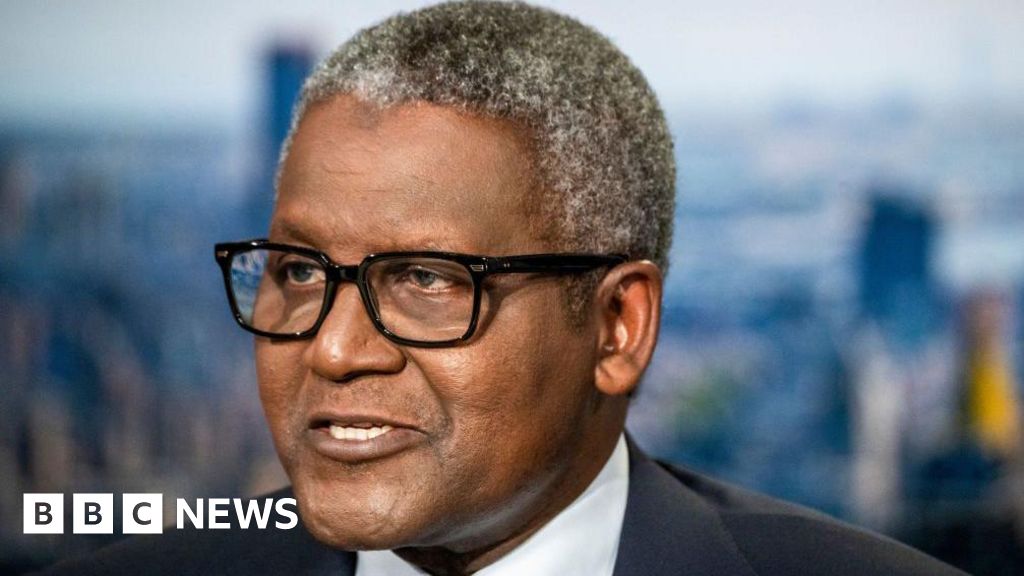ARTICLE AD BOX
By Toby Luckhurst & Olga Pona
BBC News, Lviv
Watch: Putin orders forces to block off last Mariupol fighters in steel plant
Russian President Vladimir Putin has ordered his troops to seal off Ukrainian defenders inside the besieged port city of Mariupol.
Mr Putin told forces to abandon plans to storm the sprawling Azovstal steel works there, where Ukraine is still resisting the invaders.
But a leader of the controversial Azov battalion told the BBC Mr Putin "has just admitted their possible defeat".
"They're not able to occupy the Azovstal," Maksym Zhorin said.
The Azovstal Iron and Steel Works - a massive, four sq-mile (10 sq km) plant in the south-east of the city - has become the last centre of Ukrainian resistance in Mariupol. Civilians as well as fighters are inside the plant.
Taking the port city is a key war aim for President Putin. It would give his forces a land bridge to Ukraine's Crimean peninsula, which Russia occupied in 2014.
But despite controlling most of the city, the Russians still have not dislodged the Ukrainian troops inside the Azovstal works.
'So that a fly cannot pass through'
At a televised meeting with Defence Minister Sergei Shoigu on Thursday, Mr Putin officially cancelled plans to assault the works and ordered instead that the area be sealed off.
"Block off this industrial area so that a fly cannot not pass through," he said.
"There is no need to climb into these catacombs and crawl underground through these industrial facilities," he said, while praising Mr Shoigu for the successful operation to "liberate Mariupol" from Ukraine.
It comes after weeks of Russian bombardment of the area, and repeated demands for Ukrainian troops within to surrender.
The site is a maze of tunnels and workshops and provides a natural advantage to defenders. Yan Gagin, an official with the separatist Donetsk People's Republic, told Russian state news network RIA over the weekend that there is "basically another city" beneath the plant.
The BBC cannot independently confirm how many civilians remain inside the steel works.
But Maksym Zhorin, a former commander of the Azov battalion - a controversial national guard unit with links to the far-right, which Russia has vowed to destroy - tells us there are more than 2,000 civilians sheltering there, and "many more" elsewhere in the city.
Speaking on the phone from Kyiv, Mr Zhorin said the roughly 1,000 Ukrainian defenders left in the works have been fighting in "360 degrees for more than one month", repulsing attacks from all angles. Despite what Mr Putin said today, "the situation hasn't changed", he said.
First of all, let's believe it when we see it.
It should become quickly apparent if Russian forces switch from bombarding the Azovstal plant to simply blockading it.
But if they do, why the change of plan?
Mr Putin is anxious to get on with his offensive in the Donbas. The fight for Mariupol has drained vital resources and pinned down Russian troops who could be used to pursue wider objectives.
Separated from the centre of Mariupol by the Kal'mius River, the sprawling steel plant should be relatively easy to isolate, but if Mr Putin wants to be sure that "not a fly gets through", he will need to leave significant forces in place.
With President Zelensky vowing to call off peace talks if the city's last defenders are killed, it's also possible that Mr Putin wants to keep the diplomatic process - or at least the semblance of a process - alive.
There may even be an economic element to this. Azovstal is one of Europe's biggest steel works. Even after weeks of appalling destruction, Moscow may be hoping that there's something of value to salvage.
Mr Zhorin accused Russian forces of bombing civilian shelters and of using weapons banned or restricted by international law - including phosphorus bombs and cluster munitions - in attacks on Azovstal.
Ukraine as well as the US and UK have announced investigations into the possible use of chemical weapons in Mariupol, something Russia has denied. The BBC cannot independent confirm the allegations.
He also said the battle for Mariupol was like "a test for the world".
"Whether humanity can react, can unite, in order to save innocent civilians," he said.
On Wednesday a Ukrainian marine commander told the BBC in a video message that they were caring for 500 injured troops inside the plant.
Major Serhiy Volyna said they were desperately low on supplies, and said his message could be "our last address to the world".
Officials say around 100,000 civilians remain elsewhere in the city.
Attempts to bring them out through humanitarian corridors have floundered. Ukraine and Russia accused each other of bad faith in the negotiations.
Ukrainian Deputy Prime Minister Iryna Vereshchuk announced on Thursday that just four buses of civilians had managed to leave the city the previous day.
The BBC's Samantha Granville is in Zaporizhzhia waiting for them - she says there is optimism they will arrive but the timing is unclear.
The authorities have set up a big tent at the evacuation centre with volunteers inside ready to feed and clothe evacuees.

 2 years ago
55
2 years ago
55








 English (US)
English (US)